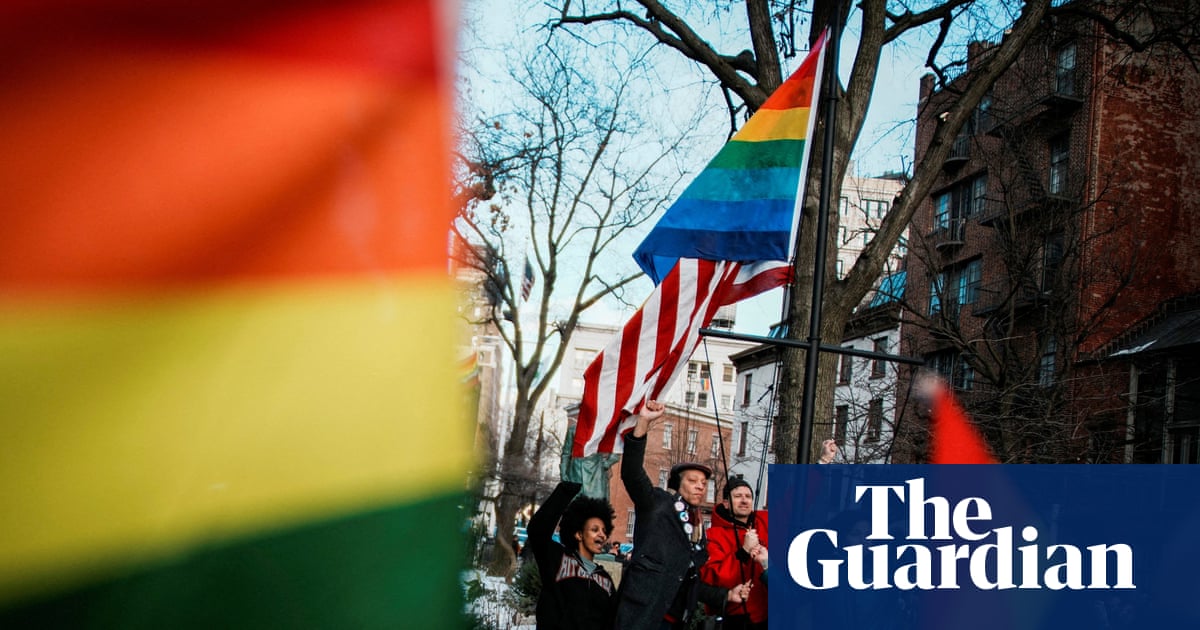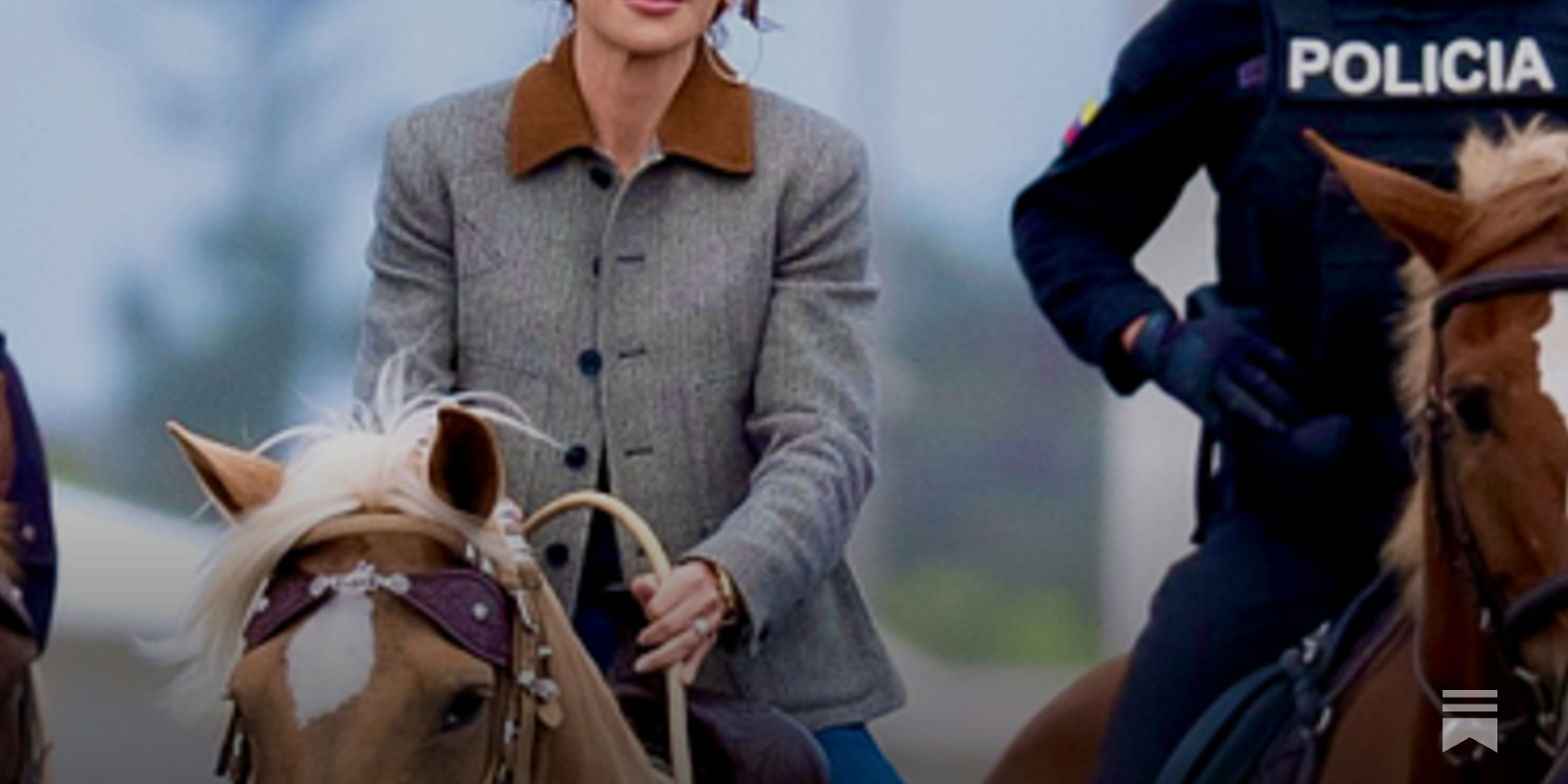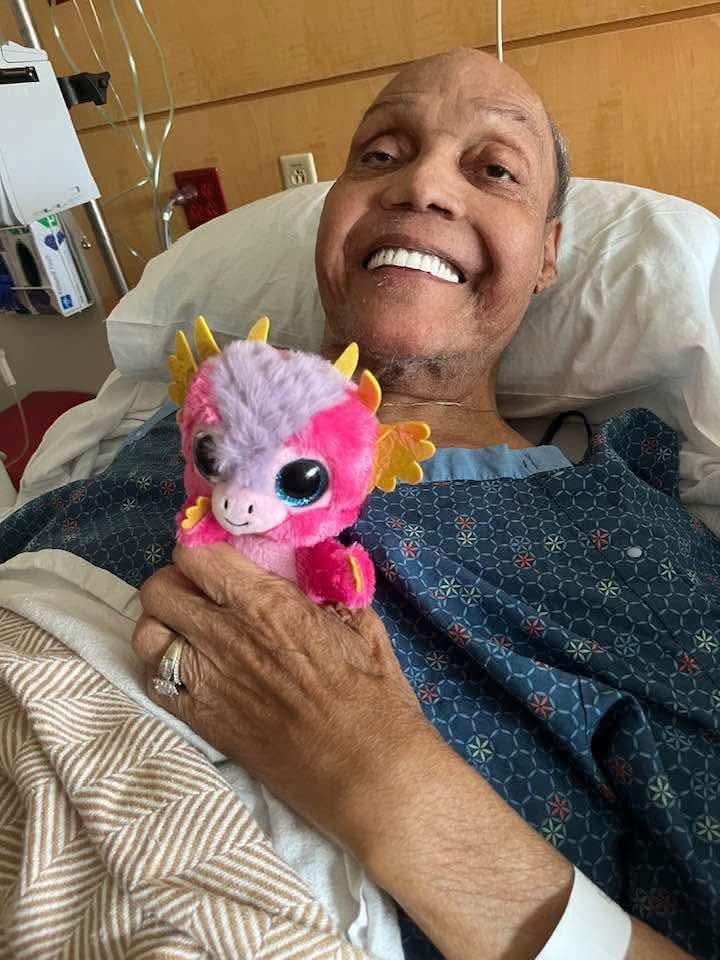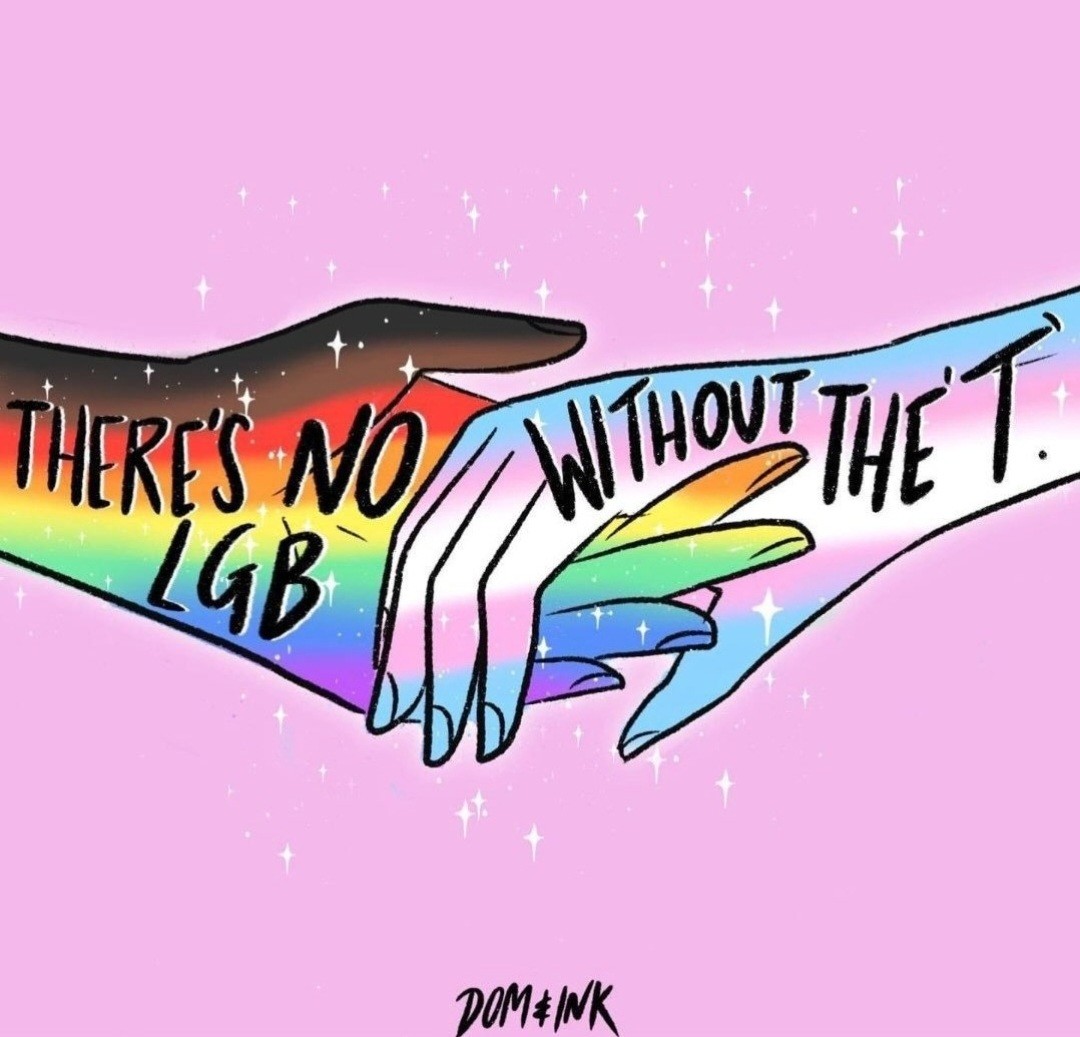Pride flag reinstated at Stonewall after it was removed by Trump administration | New York | The Guardian
https://www.theguardian.com/us-news/2026/feb/12/pride-flag-reinstated-stonewall
Pride flag reinstated at Stonewall after it was removed by Trump administration | New York | The Guardian
https://www.theguardian.com/us-news/2026/feb/12/pride-flag-reinstated-stonewall
#Pride flag removed from #Stonewall National Monument under #Trump Admin directive
https://pix11.com/news/local-news/manhattan/pride-flag-removed-from-stonewall-national-monument-under-trump-admin-directive/
> A rainbow Pride flag has been removed from New York’s historic Stonewall National Monument in Greenwich Village, following a memorandum issued by the federal National Parks Department.
"Republicans across the country are now being forced to confront what a liability Trump has become for their own political fortunes. In the coming months every Republican elected official in the country, including those in Congress," (continued in /15)
~ Simon Rosenberg
#Trump #Epstein #coverup #stonewall #pedophiles #DirtyDonald #corruption #SupremeCourt #tariffs #elections #polls #ApprovalRating #ballroom #economy #prices #jobs
/14
https://www.hopiumchronicles.com/p/is-it-time-for-trump-to-go
(continued from /14)
"are going to be forced to govern and legislate against the incredible damage Trump has done to our economy, our health care system, the fiscal conditions of all governments across the US, the social safety net, farmers and small businesses, our energy systems, our rights and freedoms."
#Trump #Epstein #coverup #stonewall #pedophiles #DirtyDonald #corruption #SupremeCourt #tariffs #elections #polls #ApprovalRating #ballroom #economy #prices #jobs
/15
Ben Meiselas reports that Trump is spiraling out of control today, spending the morning "erupting online":
"We now know that Trump’s name appears on more than half of the Epstein email threads, an extraordinary and deeply disturbing fact. And the president’s reaction is somehow even more revealing. His posts were a frenzy of projection and panic."
#Trump #Epstein #coverup #stonewall #pedophiles #DirtyDonald #corruption
/16
https://www.meidasplus.com/p/trump-has-saturday-meltdown-as-crash
"Republicans across the country are now being forced to confront what a liability Trump has become for their own political fortunes. In the coming months every Republican elected official in the country, including those in Congress," (continued in /15)
~ Simon Rosenberg
#Trump #Epstein #coverup #stonewall #pedophiles #DirtyDonald #corruption #SupremeCourt #tariffs #elections #polls #ApprovalRating #ballroom #economy #prices #jobs
/14
https://www.hopiumchronicles.com/p/is-it-time-for-trump-to-go
(continued from /14)
"are going to be forced to govern and legislate against the incredible damage Trump has done to our economy, our health care system, the fiscal conditions of all governments across the US, the social safety net, farmers and small businesses, our energy systems, our rights and freedoms."
#Trump #Epstein #coverup #stonewall #pedophiles #DirtyDonald #corruption #SupremeCourt #tariffs #elections #polls #ApprovalRating #ballroom #economy #prices #jobs
/15
"Republicans across the country are now being forced to confront what a liability Trump has become for their own political fortunes. In the coming months every Republican elected official in the country, including those in Congress," (continued in /15)
~ Simon Rosenberg
#Trump #Epstein #coverup #stonewall #pedophiles #DirtyDonald #corruption #SupremeCourt #tariffs #elections #polls #ApprovalRating #ballroom #economy #prices #jobs
/14
https://www.hopiumchronicles.com/p/is-it-time-for-trump-to-go
"His poll numbers have dipped as Americans conclude that he cares too much about gilded ballrooms and is not focused nearly enough on bringing down high prices. And dread has crept into the West Wing now that Trump faces a rare rebuke from fellow Republicans, including some who have been among his most loyal MAGA foot soldiers."
#Trump #Epstein #coverup #stonewall #pedophiles #DirtyDonald #corruption #SupremeCourt #tariffs #elections #polls #ApprovalRating #ballroom #economy #prices #jobs
/13
"Epstein returns at the worst time for Trump. ...
Trump’s party got wiped out in last week’s elections as voters assigned it the greater portion of blame for the shutdown. The Supreme Court seems set to unravel his signature tariffs."
~ Jonathan Lemire
#Trump #Epstein #coverup #stonewall #pedophiles #DirtyDonald #corruption #SupremeCourt #tariffs #elections #polls #ApprovalRating #ballroom #economy #prices #jobs
/12
https://www.theatlantic.com/politics/2025/11/jeffrey-epstein-trump-emails/684926/
"Whatever new atrocities Trump has planned for Americans, he is obviously pre-selling his ‘domestic terrorist’ narrative, getting his Proud Boys riled up against the ‘enemies within.’ Whatever he’s dreamed up will be miles away from due process and the rule of law, just like Epstein’s crimes and death and 66 people buried at sea."
~ Sabrina Haake
#Trump #Epstein #coverup #stonewall #pedophiles #DirtyDonald #corruption #freakout #meltdown #murder
/11
https://sabrinahaake.substack.com/p/jeffrey-epstein-and-the-unmentioned
“'If there’s nothing incriminating in the files, why not—'
And Trump snapped:
'QUIET! QUIET!'
That’s not the reaction of an innocent man.
That’s the reaction of someone cornered."
#Trump #Epstein #coverup #stonewall #pedophiles #DirtyDonald #corruption
/10
"Donald Trump is absolutely unraveling. ...
As Trump was walking out of the White House toward Marine One, on his way to Palm Beach (the scene of the crime), reporters asked him about the Epstein Files. He didn’t say a word."
Then, during his trip, a reporter asked him the simplest, most obvious question in the world:"
~ Ben Meiselas
#Trump #Epstein #coverup #stonewall #pedophiles #DirtyDonald #corruption
/9
https://www.meidasplus.com/p/critical-saturday-message-from-meidastouch
"I remember Trump promising us a wall. I don’t remember the stonewall part.”
~ Ann Coulter quoted by Ron Filipkowski
#Trump #Epstein #coverup #stonewall #pedophiles #DirtyDonald #corruption
/5
https://www.meidasplus.com/p/today-in-politics-bulletin-250-111425
"Truly, Donald Trump has finally become undone. ...
Inadvertently, Trump has begun deprogramming even the most ardent members of his base."
~ Julie Roginsky
#Trump #Epstein #coverup #stonewall #pedophiles #DirtyDonald #corruption #MAGA #meltdown #freakout
/6
https://saltypolitics.substack.com/p/the-stupidest-thing-trump-could-have
"Trump left the building on Friday and entered the 'Look, there goes Elvis' stage of his presidency. ...
No one believes that Trump’s 'investigation' [of Democrats] is anything other than a criminal who is caught in the act yelling, 'Look, there goes Elvis.' It is a pathetic, desperate ploy that serves only to increase suspicions regarding Trump’s criminal culpability."
~ Robert B. Hubbell
#Trump #Epstein #coverup #pedophiles #DirtyDonald #corruption #meltdown
/4
https://roberthubbell.substack.com/p/trump-resorts-to-the-look-there-goes
"I remember Trump promising us a wall. I don’t remember the stonewall part.”
~ Ann Coulter quoted by Ron Filipkowski
#Trump #Epstein #coverup #stonewall #pedophiles #DirtyDonald #corruption
/5
https://www.meidasplus.com/p/today-in-politics-bulletin-250-111425
From Facebook:
Hey y’all! The mother of the Trans liberation movement, Miss Major is currently hospitalized. She needs our help! Please donate to her fundraising campaign. She has looked out for us for generations, now it’s time to look out for her.
#MutualAid #lgbtiqa #queer #trans #MissMajor #MamaMajor #Stonewall #pride #PrideProtest #PleaseShare #PleaseHelp
From Facebook:
Hey y’all! The mother of the Trans liberation movement, Miss Major is currently hospitalized. She needs our help! Please donate to her fundraising campaign. She has looked out for us for generations, now it’s time to look out for her.
#MutualAid #lgbtiqa #queer #trans #MissMajor #MamaMajor #Stonewall #pride #PrideProtest #PleaseShare #PleaseHelp
A reminder to all the TERFs and transphobic queers out there that the first Pride was a riot, literally. And it was led by trans women and drag queens, including Marsha P. Johnson, as well as lesbians, who refused to submit to police bodily searches during a raid on the Stonewall Inn night club, and who fought back during the cops' attempts to mass arrest patrons and community members.
#lgbtq #pride #stonewall #transrightsarehumanrights #transphobia #Riot #police #policebrutality #homophobia
After Trans People, Trump Now Erasing Bisexual People From Stonewall National Monument.
The "History and Culture" page no longer includes bisexual rights.
https://www.erininthemorning.com/p/after-trans-people-trump-now-erasing
After Trans People, Trump Now Erasing Bisexual People From Stonewall National Monument.
The "History and Culture" page no longer includes bisexual rights.
https://www.erininthemorning.com/p/after-trans-people-trump-now-erasing




